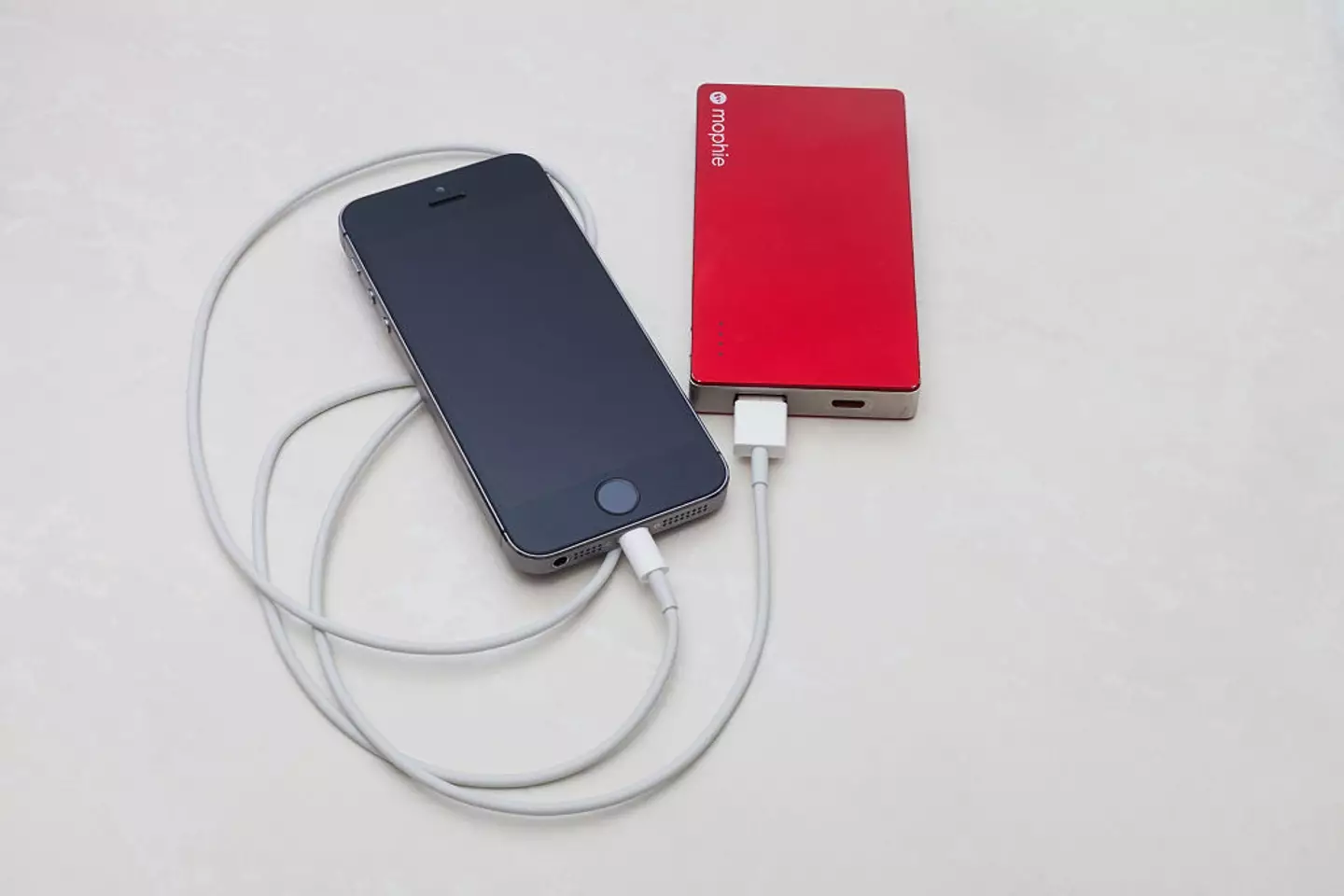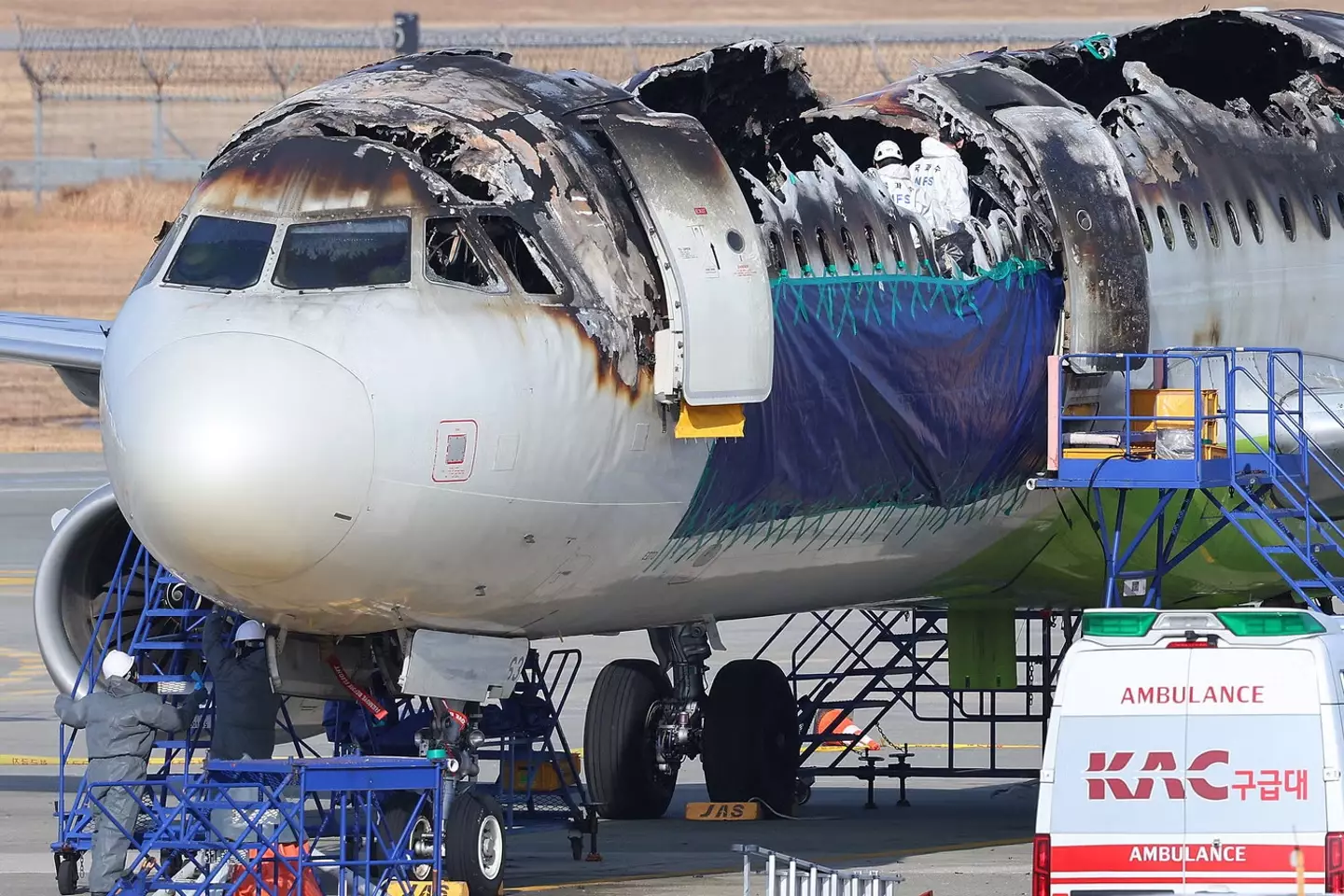In a move that has shocked frequent flyers and aviation enthusiasts alike, South Korea’s Air Busan has announced a ban on storing power banks in overhead luggage bins following a terrifying in-flight fire incident. This decision comes after one of their planes caught fire on the runway during preparations for takeoff to Hong Kong on January 28. While there were no casualties, the incident has raised serious concerns about the safety of lithium-ion batteries during flights.

Diane Macdonald / Contributor / Getty
What Happened on January 28?
The flight in question was preparing to depart when a flight attendant noticed smoke emanating from an overhead luggage compartment on the rear left-hand side of the plane. Within moments, flames were visible, causing panic among passengers and crew. Thanks to the swift actions of the cabin crew, all passengers were safely evacuated, and the fire was contained before it could cause more extensive damage.
South Korean authorities have since launched an investigation to determine the exact cause of the fire. While no official conclusion has been reached, early reports suggest that a power bank stored in the overhead bin may have been the culprit. This incident has highlighted the potential dangers associated with improperly stored lithium-ion batteries on aircraft.

Joseph David Emerson was initially charged with attempted murder after taking magic mushrooms before a flight (YouTube/FX Networks)
Power banks have become an essential travel accessory, providing a convenient way to keep devices charged during long flights. However, they contain lithium-ion batteries, which are known to pose fire risks if they overheat, are damaged, or experience a manufacturing defect.
Lithium-ion batteries can enter a dangerous state known as “thermal runaway,” where the battery’s internal temperature rises rapidly, leading to fires or even explosions. This risk is significantly heightened in the confined space of an aircraft cabin, where a fire can spread quickly and pose a severe threat to passenger safety.
Air Busan’s New Safety Measures
In response to the January incident, Air Busan has introduced new safety protocols aimed at preventing similar occurrences in the future:
- Prohibition of Power Banks in Overhead Bins:
Passengers are now prohibited from storing power banks in overhead luggage compartments. Instead, they must keep these devices on their person at all times during the flight. This allows cabin crew to quickly identify and address any signs of overheating or malfunction. - Enhanced Screening at Boarding Gates:
Carry-on bags will be inspected at boarding gates. Bags that do not contain power banks will receive a special tag, indicating they are safe for storage in overhead bins. - Trial Implementation:
The new measures will initially be implemented on select trial routes. Based on the effectiveness and feedback, Air Busan plans to expand the policy across all its flights. - Crew Training and Equipment Upgrades:
Air Busan has also committed to providing additional fire safety training for its crew members and equipping its aircraft with advanced fire containment equipment, including thermal containment bags designed to isolate overheating devices.
The Global Issue of Lithium-Ion Battery Safety
While Air Busan’s response is proactive, the risks associated with lithium-ion batteries are not new to the aviation industry. Global aviation safety standards already prohibit the storage of devices with lithium-ion batteries in checked luggage due to the potential fire hazard. This includes not only power banks but also laptops, tablets, and electronic cigarettes.
Cabin crews worldwide are trained to handle battery-related incidents, equipped with fire extinguishers and containment devices. However, as the demand for portable electronic devices grows, so too does the challenge of managing these risks effectively.
South Korea’s Broader Aviation Safety Reforms
The Air Busan incident is part of a troubling pattern of recent aviation safety concerns in South Korea. In response, the South Korean government has announced plans to overhaul its aviation safety systems.
“In order to restore trust in our country’s aviation safety system, the government will make a determined effort to rebuild the aviation safety system from the ground up,” said Deputy Minister of Land, Infrastructure, and Transport Baek Won-kuk.
This initiative includes:
- Stricter Regulations on Hazardous Materials:
Enhanced guidelines for the transport of batteries and other potentially dangerous goods. - Increased Inspections:
More frequent and thorough safety inspections of aircraft and cargo. - Improved Emergency Response Protocols:
Training programs for aviation staff to respond effectively to in-flight emergencies.
What Travelers Need to Know
If you’re planning to fly with Air Busan or any other airline, here are some key takeaways to ensure your safety and compliance with new regulations:
- Carry Power Banks in Your Personal Bag:
Always keep power banks in your carry-on bag, ideally within easy reach. Avoid placing them in overhead bins. - Check Airline Policies:
Policies may vary between airlines, so it’s wise to review specific regulations before you travel. - Inspect Your Devices:
Check your power banks for any signs of damage, such as swelling, leaking, or overheating, before bringing them on a flight. - Use Certified Devices:
Purchase power banks from reputable manufacturers that meet international safety standards.
A Closer Look at Lithium-Ion Battery Fires
Lithium-ion battery fires can be particularly challenging to manage due to the intense heat they generate. Traditional fire extinguishers are often ineffective against these types of fires. Instead, aviation crews rely on specialized containment bags and cooling methods to suppress the flames.
Research shows that battery-related incidents on planes are increasing globally. According to the Federal Aviation Administration (FAA), there were over 300 documented cases of lithium battery-related fires on aircraft between 2006 and 2022. This data underscores the need for stringent safety measures and public awareness.
The Importance of Crew Training
Air Busan’s decision to enhance crew training is a critical step in ensuring passenger safety. Proper training can mean the difference between a contained incident and a full-blown disaster. Crew members are taught how to identify early warning signs of battery failure, such as unusual odors, smoke, or excessive heat.
In addition to basic fire response techniques, modern training programs include the use of fire containment bags, rapid evacuation procedures, and communication protocols to coordinate with ground emergency services.
Conclusion: A Wake-Up Call for Airlines and Passengers
The January 28 incident aboard Air Busan serves as a stark reminder of the hidden dangers associated with everyday electronic devices. As technology continues to evolve, both airlines and passengers must adapt to new safety challenges.
Air Busan’s proactive measures—including the ban on power banks in overhead bins, enhanced screening procedures, and comprehensive crew training—set a strong example for the global aviation industry. These steps not only protect passengers but also reinforce the importance of vigilance and preparedness in maintaining flight safety.

